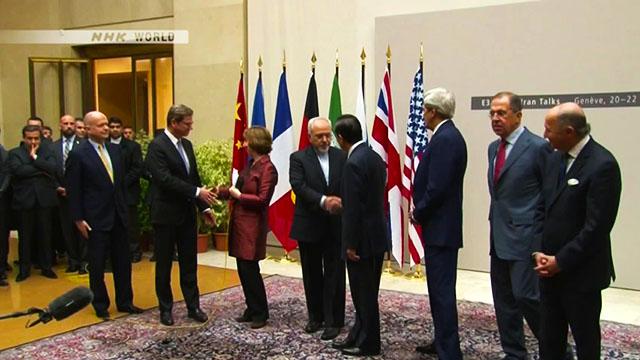The negotiators gathered in Vienna for their final push. Foreign ministers from the 6 world powers sat down together Monday, July 6, then joined officials from Iran.
One point of dispute is whether inspectors will have access to military facilities suspected of developing nuclear weapons. Another is whether Iran will continue to develop advanced centrifuges.
Senior Iranian officials spoke with NHK before the talks. They said negotiators had reached a broad agreement on when Iran would scale back its nuclear program, and when sanctions would be lifted. It's been a long road to these talks. Here's how the negotiators got there.
Iran's uranium enrichment program came to light in 2002. Western governments suspected the Iranians were developing nuclear weapons. Leaders in Tehran insisted they had only peaceful goals, such as power generation.
In 2011, the International Atomic Energy Agency contradicted that claim. Officials reported the Iranians were doing work relevant to the development of nuclear weapons.
That prompted the United States and European nations to impose economic sanctions. They stopped importing Iranian oil, and restricted transactions with the country's banks.
Leaders in Israel showed signs of launching preemptive strikes against Iran's nuclear facilities. They claimed the development program was for military purposes, and called it a major threat.
Leaders in Tehran kept up a hardline stance toward the West. Still, the sanctions made life much harder for citizens. The value of the Iran's currency plunged. Consumer prices more than doubled.
Then in August 2013, Hassan Rouhani became president, and opened the door to dialogue.
In November that year, the Iranians reached a deal with 6 world powers. They agreed to limit their uranium enrichment in return for the lifting of some economic sanctions. The governments treated that deal as the first step toward a final settlement.
Negotiators made more progress this April. They reached what they called a framework agreement. The 6 world powers agreed to lift all their sanctions-- if the Iranians kept their promise to shrink their nuclear program.
"Our political understanding arrived at today opens the door to a long-term resolution to international communities' concerns about Iran's nuclear program," says the US Secretary of State John Kerry.
The negotiators in Vienna had hoped to strike a final deal last Tuesday. They gave themselves another week, and now once again, they're racing against the clock. The negotiators have had a string of missed deadlines, and reports already point to another. The Obama administration is keen to get a deal by Thursday. After that, the time for Congress to review it would grow from 30 days to 60. Whatever happens, it's clear the negotiations are at a crucial stage.
